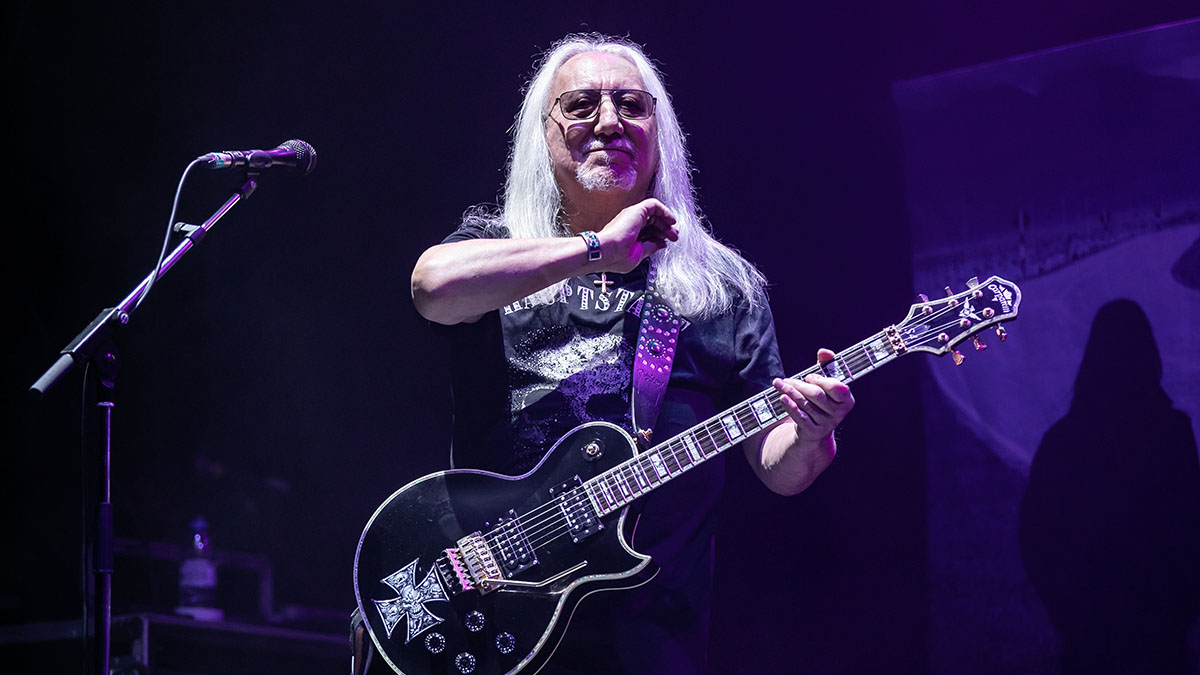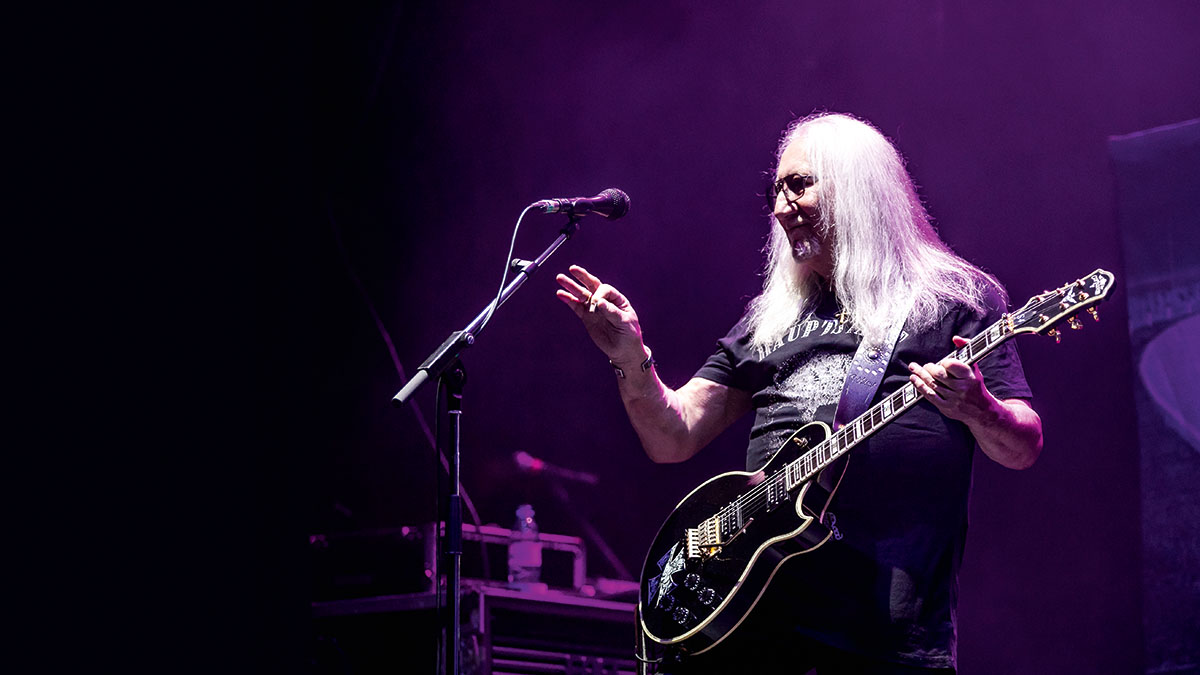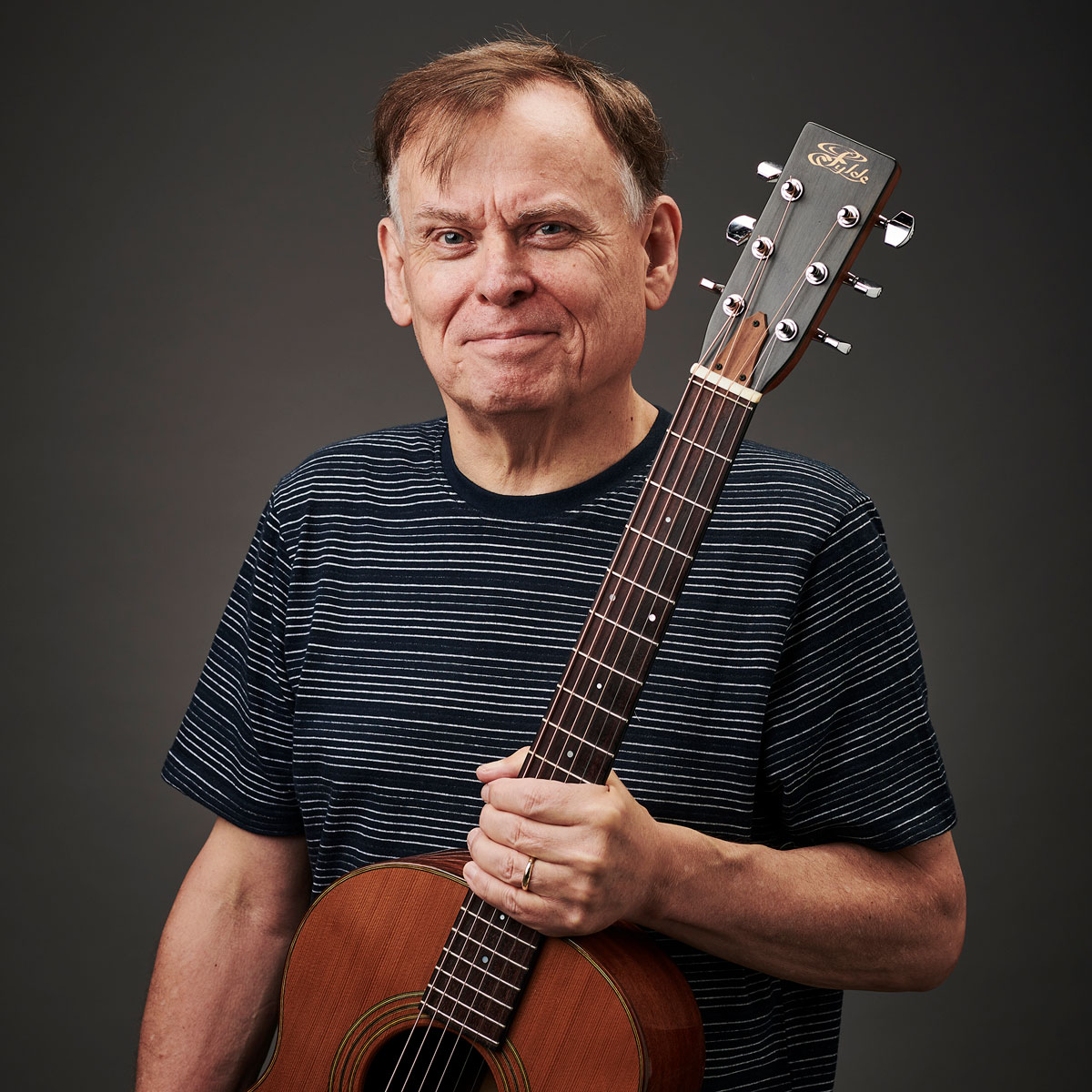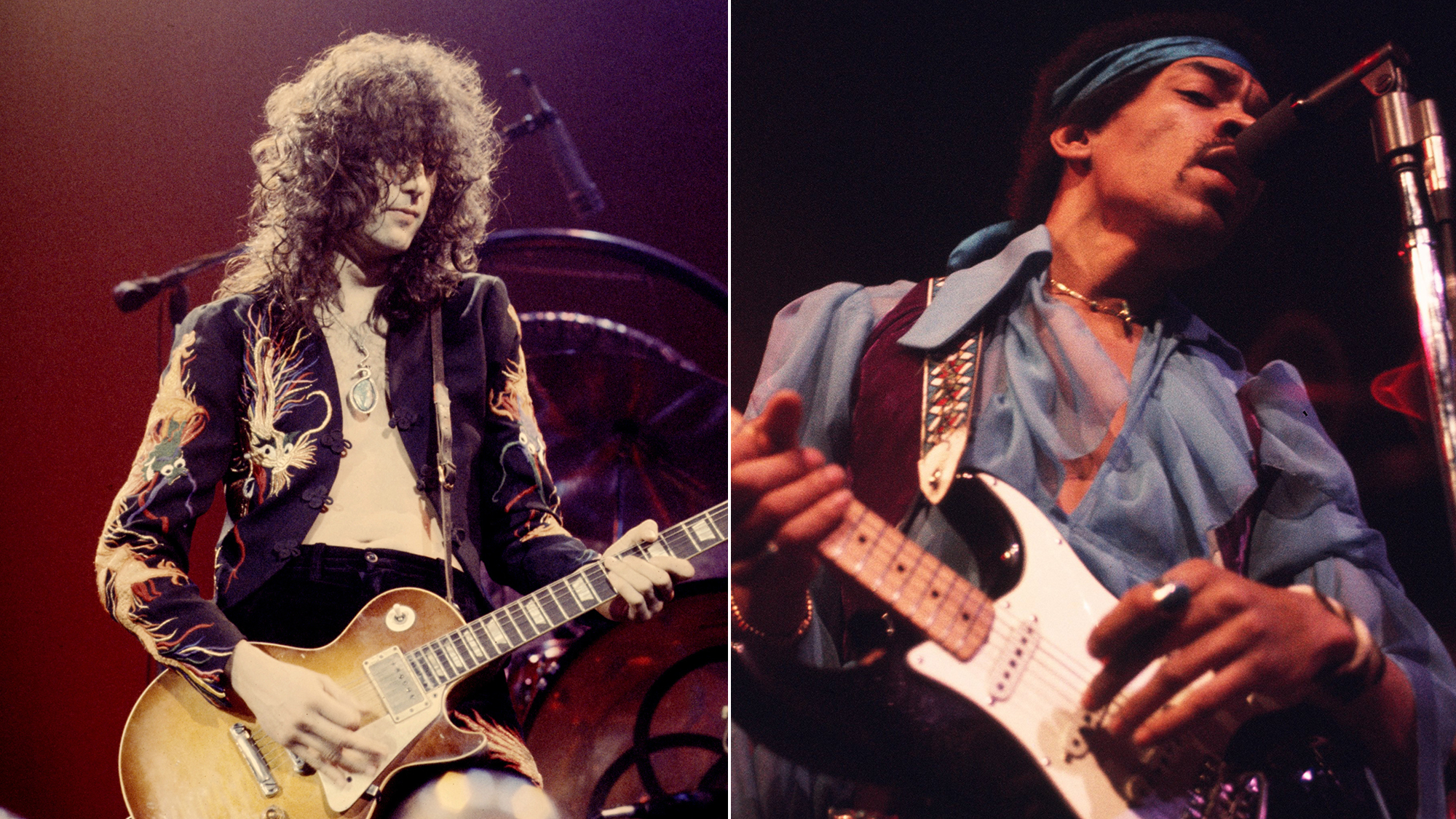Mick Box on his greatest gear hits and misses: “It’s not all about price – it’s about feel”
The Uriah Heep guitarist mourns the loss of a Telecaster and champions his signature Carparelli guitars

Uriah Heep’s return with Chaos & Color, their 25th studio album of a recording career that stretches back to 1970's seminal ...Very 'Eavy ...Very 'Umble, was as good an excuse as any to grab 30 minutes with its founding member and ever-present guitarist, Mick Box, and to talk about the gear behind his sound.
Box’s electric guitars don’t have it easy in Heep. They have to jostle for space in the mix with the Hammond organ, bass guitar, drums and vocals, and over the years Box has learned what works – namely Les Pauls, guitars with humbuckers in them.
But in latter years, as his collection has got weathered, he has graduated towards Canadian builder Mike Carparelli’s guitars. Here he explains why those single-cuts have got exactly what he needs, and as everyone who appears in Bought & Sold, he takes a trip down memory lane to talk about the gear that got away, his greatest purchases – and to share some tips for finding your own guitar.
What was the first serious guitar you bought with your own money?
“My first guitar was a Telston semi-acoustic that my mother bought me when I was 14, and which I’ve still got hanging on my office wall. It was from a pawnbroker and it cost £12 and 10 shillings in old money. Then I got a hire purchase agreement for a Telecaster, which is one of those that I wish I still had, but I had to exchange it for a Les Paul Black Beauty, which I had flown over from Kalamazoo to a shop in Bournemouth called Eddie Moors Music.
“And, really, that’s the first one that I actually bought with my money because I took a job for a year in an export company up in the City of London. I said to my mother, ‘Look, once I’ve paid off the HP agreement I’m going to be a professional musician for life.’ And that’s exactly what I did – paid it off in a year and on the last payment I went, ‘Bye!’ and never looked back.”
These Carparellis are good – roadworthy, sound great, play great – so I use them and Furch acoustic guitars. They’re beautiful guitars
What was the last guitar you bought?
Get The Pick Newsletter
All the latest guitar news, interviews, lessons, reviews, deals and more, direct to your inbox!
“I’m in a very fortunate position where they give them to me! I don’t think I’ve bought anything for ages. I mean, I’ve got sponsorship with guitar makers. At the moment I’m playing Carparelli guitars made by Mike Carparelli in Toronto, Canada. I take them on the road because I got fed up with taking out all my old Gibsons and things like that because they were getting battered. But these Carparellis are good – roadworthy, sound great, play great – so I use them and Furch acoustic guitars. They’re beautiful guitars.”
What’s the most incredible find or bargain you’ve ever had when buying guitars?
“I think there was a Les Paul Junior that was a bit of a steal. I bought it out in America, in a shop that didn’t really understand the value of it. It didn’t cost a fortune, probably $500 or something silly like that. Maybe that’s the best deal I’ve had.”
What’s the strongest case of buyer’s remorse you’ve ever had after buying a guitar?
I always keep going back to the Les Paul style. It’s something that fits not only me but it fits the band
“Do you know what? I was given a Charvel guitar in the 80s. I’d heard other people playing them and I thought, ‘Well, they look reasonably good,’ and the company sent me one. I just couldn’t get on with it, the neck was too fat, it just felt uncomfortable to play and even the look was a bit too modern for me. So I was kind of disappointed with that.
“I always keep going back to the Les Paul style. It’s something that fits not only me but it fits the band. The only other guitar that I’ve tried that actually worked with the band was a Yamaha. They said, ‘Come to the factory and choose whatever,’ you know. They have a whole wall of guitars and they just left me in the room and said, ‘Take your choice.’ I picked out one in the medium [price] range, a Yamaha Pacifica. I said, ‘You know what? This one suits me the best…’ It’s not all about price, it’s about feel.”
Have you ever sold a guitar that you now intensely regret letting go?
“That Telecaster that I once had. It was beautiful, sounded great. But I had to part-exchange it because I desperately wanted the Les Paul. That was kind of inspired by Les Paul himself. I used to listen to Les Paul and Mary Ford’s records as much as I did Django Reinhardt, Tal Farlow and Barney Kessel. I was in that jazzy field at the time, and that’s why I was leaning towards that.
“To be honest, I used to drool over Buddy Holly and the Sunburst Fender Stratocaster and I’ve got a beautiful one now. But it still doesn’t work with the band for some reason. When you’ve got a Hammond organ on the left hand side, you’ve got the bass, drums and everything’s loud, you need something that will cut through – and the Carparelli is marvellous at that.”
What’s your best guitar-buying tip?
“I’ve got a thing about this because I find that I go to many music shops and try X, Y or Z [guitars] and they’re never really set up properly. They’re hanging on the wall for weeks on end with not a lot of attention paid to them, but I think the setup is everything.
“I have quite small hands for a guitarist and I pick up most of these guitars and a great percentage of them are unplayable for me. But my advice is don’t always look at the price, just find something that’s comfortable to you, that feels good to you. Then get it set up, take it home and you’ll be delighted.”

When was the last time you stopped to stare in a guitar shop window or browse online and what were you looking at?
“I don’t, really. I’m a little bit of an oddball like that. I’m quite happy with everything I’ve got. I do look at certain things every now and again, but you know, I don’t salivate!”
If forced to make a choice, would you rather buy a really good guitar and a cheap amp, or a cheap electric guitar and a really top-notch amp?
“I’ll take number one. Get the guitar right first and when you plug it in you can always make something out of it. But the guitar, if it’s cheaply made you’ll be chasing your tail to get it how you want it. With an amp you can always add something to it, like a pedal or something, and overdrive it and get some guts into it. So it’s got to be number one.”
If you could only use humbuckers or single coils for the rest of your career, which would you choose and why?
“Humbuckers. I’ve just loved humbuckers since I got the first Gibson Les Paul Black Beauty. They have the guts, the power. I like what they give me as a player. The single coil, I find that I have to work with it a little bit. It’s a really strange thing with guitarists; with me and my sound I can plug into a Fender Champ with something and it will sound like a Gibson in the end.
“I’ve got Seymour Duncan Jeff Beck pickups on every guitar that I use out on the road because you can interchange things; you don’t want to start messing around with the controls on the amp to make it sound right. So I’ve got three Carparellis out on the road, all with Seymour Duncan JB pickups in.”
Mick's go-to gear
“I have an Engl Fireball amp with two speakers, but the speaker cabs are straight – I don’t like the slanted ones, they drive me nuts. I just think they give the wrong tone for me and they also bleed into the microphone when I’m singing and it doesn’t help the [front of] house. I like to have them on the floor, not on wheels, so I can feel it. So that’s the amplification.
“The pedalboard is one Cry Baby wah-wah and a chorus. I’ve gone through all the rack stuff, but I feel that they squish the sound too much. So I tend to get the one sound all night and just use the volume [control on the guitar]. And that’s about it, really. Keep it simple!”
- Chaos & Colour is out now via Silver Lining Music.
With over 30 years’ experience writing for guitar magazines, including at one time occupying the role of editor for Guitarist and Guitar Techniques, David is also the best-selling author of a number of guitar books for Sanctuary Publishing, Music Sales, Mel Bay and Hal Leonard. As a player he has performed with blues sax legend Dick Heckstall-Smith, played rock ’n’ roll in Marty Wilde’s band, duetted with Martin Taylor and taken part in charity gigs backing Gary Moore, Bernie Marsden and Robbie McIntosh, among others. An avid composer of acoustic guitar instrumentals, he has released two acclaimed albums, Nocturnal and Arboretum.
“It was tour, tour, tour. I had this moment where I was like, ‘What do I even want out of music?’”: Yvette Young’s fretboard wizardry was a wake-up call for modern guitar playing – but with her latest pivot, she’s making music to help emo kids go to sleep
“There are people who think it makes a big difference to the sound. Stevie always sounded the same whether it was rosewood or maple”: Jimmie Vaughan says your fretboard choice doesn’t matter – and SRV is his proof











![John Mayer and Bob Weir [left] of Dead & Company photographed against a grey background. Mayer wears a blue overshirt and has his signature Silver Sky on his shoulder. Weir wears grey and a bolo tie.](https://cdn.mos.cms.futurecdn.net/C6niSAybzVCHoYcpJ8ZZgE.jpg)

![A black-and-white action shot of Sergeant Thunderhoof perform live: [from left] Mark Sayer, Dan Flitcroft, Jim Camp and Josh Gallop](https://cdn.mos.cms.futurecdn.net/am3UhJbsxAE239XRRZ8zC8.jpg)
